ERC Advanced Grants for Laserlab Researchers
The European Research Council (ERC) has awarded several high-profile researchers within Laserlab-Europe an ‘Advanced Grant’. ERC Advanced Grants allow exceptional established research leaders to pursue frontier research of their choice.
2024
Andrei Kirilyuk (FELIX): Interaction of light with matter via control of terahertz phonons
With the ERC Advanced Grant project INTERPHON, Andrei Kirilyuk and his group challenge the existing ideas and understanding of the interactions between light and matter, creating a whole new research area at the junction of nonlinear optics, phononics and ultrafast magnetism. Light will be made to communicate with matter in an interactive way, so that matter reciprocates by changing the very resonance
used for excitation. To realise this, INTERPHON will develop novel research methods using short and intense pulses of infrared-to-THz-range free electron laser FELIX. The aim is energy-efficient and ultrafast manipulation of materials.
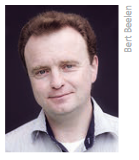
Thomas Stoehlker (GSI): Highly ionised trapped 229-thorium: A new paradigm towards a nuclear clock
Currently, there are intense research activities in many laboratories worldwide related to the “thorium clock” since such a “nuclear clock” opens new doors to fundamental physics such as e.g. testing time-variations of natural constants and exploring the enigma of dark matter. This may, in the long run, even enable the establishment of a new time standard. Thomas Stoehlker’s project “HITHOR” is a novel access to the “thorium clock” with the focus on highly-ionized 229-thorium, an elementary quantum-system, which consists only of the thorium nucleus and one or few electrons.
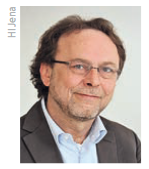
Thomas Udem (MPQ): High resolution laser spectroscopy of atomic hydrogen and deuterium
The standard model of particle physics explains how the world is organised at the smallest scale. However, it does not fit all physical observations. One approach to testing the model is to measure physical processes ever more precisely and to determine the constants of nature ever more accurately. With his ERC Advanced Grant, Thomas Udem wants to measure the energies for selected excitations of a hydrogen atom with unprecedented precision. To this end, he and his team will develop an optical trap for hydrogen atoms. In this trap, they can fix atomic hydrogen in such a way that its excitation can be determined with particular precision.
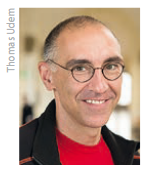
Javier García de Abajo (ICFO): Quantum-enhanced free-electron spectromicroscopy
In his project QUEFES, Javier García de Abajo will introduce a conceptually disruptive approach to capitalise on the quantum nature of free electrons and their interactions with matter and radiation fields aiming to obtain previously inaccessible information on the atomic-scale dynamics of such materials, to reveal hidden properties of the quantum vacuum, and to control the many-body state of quantum matter.
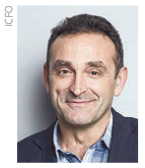
Roberta Croce (LLAMS): Photosynthesis in far-red: from cyanobacteria to plants
When plants grow close together, the lower leaves receive almost exclusively far-red light, which has been thought to be unusable for oxygenic photosynthesis. Recent discoveries, however, show that certain cyanobacteria, the ancestors of plant chloroplasts where photosynthesis takes place, can grow under far-red light. This is where Roberta Croce comes in: She receives an Advanced Grant for her research project “Fared
Well”, through which she aims to learn from those bacteria how to improve plant photosynthesis.
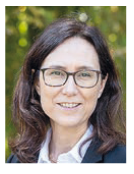
Johannes de Boer (LLAMS): Immunooptical coherence tomography
In the early stages, tumours are too small to be visible with PET and CT. Optical techniques have a much higher resolution and can detect tumours at a much earlier stage. With his ERC Advanced Grant, Johannes de Boer will develop a new optical endoscopic imaging technique to detect cancer in the human body with a resolution 10 to 100 times higher than currently possible. The major challenge is to develop very small motorised catheters that can penetrate deep into the body to determine both the structure and the molecular composition of tissue with light.
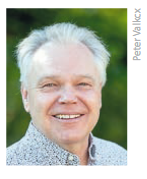
Sandrine Lévêque-Fort (ISMO): Time-based single molecule nanolocalisation for live cell imaging
Sandrine Lévêque-Fort has been awarded an ERC Advanced Grant for her project TimeNanoLive. While current approaches based on the localisation of individual fluorescent molecules allow for observations on the nanometre scale, the current localisation process of these molecules is slow and often limited to the observation of non-living cells. TimeNanoLive aims to revolutionise localisation by using a specific structured illumination to encode the 3D position of fluorescent molecules with increased spatial and temporal resolution.
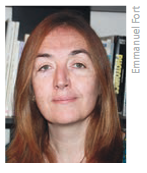
Previous Advanced Grants
| name | project | year |
|---|---|---|
| Maximilian Beyer (LLAMS) | Helium dimer ultracold molecules – a platform for fundamental physics and ultracold chemistry | 2023 |
| Carl Davies (FELIX) | HandShake – Research on novel technology for electively switching magnetisation | 2023 |
| Pelayo Garcia de Arquer (ICFO) | Nanoscale advance of CO2 electro reduction | 2023 |
| Samuel Beaulieu (CELIA) | Ultrafast topological engineering of quantum materials | 2023 |
| Marcus Ossiander (IEP-TU Graz) | Extreme ultraviolet meta-optics for attosecond microscopy | 2023 |
| Adrien Leblanc (LOA) | Experimental signatures of quantum electrodynamics in the strong field regime | 2023 |
| Hugo Marroux (LIDYL) | Solution attosecond chemistry | 2023 |
| Sérgio Domingos (CLL) | Microwave finger-printing artificial molecular motors in virtual isolation | 2023 |
| Margherita Maiuri (POLIMI) | Manipulation of photoinduced processes by reshaping transition states via transient strong coupling | 2023 |
| Andrea Trabattoni (DESY) | Multi-messenger soft-field spectroscopy of molecular electronics at interfaces | 2023 |
| Matz Liebel (LLAMS) | Phototransient microscope | 2023 |
| Romain Géneaux (LIDYL) | Controlling spin angular momentum with the field of light | 2022 |
| Dmitri Efetov (ICFO) | Superconductivity in ‘magic angle’ graphene | 2019 |
| Matteo Lucchini (POLIMI) | Attosecond dynamics in two-dimensional materials | 2019 |
| Andreas Ehn (LLC) | Filming cold plasmas with lasers | 2019 |
| Mikkel Brydegaard (LLC) | Detecting insects with lasers | 2019 |
| Guillaume Salomon (MPQ) | Searching for fractional quantum states | 2019 |
| Benjamin Fingerhut (MBI) | Understanding ultrafast biomolecular processes | 2018 |
| Elias Kristensson (LLC) | Videos of ultrafast phenomena | 2018 |
| Andreas Reiserer (MPQ) | A scalable quantum network | 2017 |
| Simon Wall (ICFO) | Fluctuations in high-temperature superconductors | 2017 |
| Michael Krieg(ICFO) | How to build a brain? Engineering molecular systems for mechanosensing and protection in neurons | 2016 |
| Sébastien Corde (LOA) | Miniature beam-driven plasma accelerators | 2016 |
| Christian Gross (MPQ) | Rydberg dressing in ultracold atoms with ultraviolet laser light | 2015 |
| Edouard Berrocal (LLC) | Detailed Characterization of Spray Systems Using Novel Laser Imaging Techniques | 2014 |
| Francesca Calegari (POLIMI) | Steering Attosecond Electron Dynamics in Biomolecules with UV-XUV Light Pulses | 2014 |
| Darrick Chang (ICFO) | Frontiers of Quantum Atom-Light Interactions | 2014 |
| Carlo Sias (LENS) | An Ultracold Gas Plus One Ion | 2014 |
| Matteo Zaccanti (LENS) | Superfluidity and Ferromagnetism of Unequal Mass Fermions with Two- and Threebody Resonant Interactions | 2014 |
| Stefan Witte (LLAMS) | High-resolution Microscopy without Lenses | 2014 |
| Melike Lakadamyali (ICFO) | combining several advanced techniques (single particle tracking, quantitative single molecule counting, genetic manipulation, and fluorescence labelling) with ‘nanoscopy’ | 2013 |
| Caterina Vozzi (CUSBO) | Ultrafast dynamic imaging of complex molecules Molecules stimulated to emit extreme ultraviolet (XUV) light | 2012 |
| Alex Robinson (CLF) | Magnetic guiding of electrons for fusion In Inertial Confinement Fusion (ICF) experiments | 2012 |
| Masaki Hori (MPQ) | Precision laser spectroscopy of antiprotonic and pionic atoms | 2012 |
| Jérôme Faure (LOA) | Femtosecond laser-plasma based electron source | 2012 |
| Giacomo Roati (LENS) | Quantum simulation of two-dimensional fermionic systems | 2012 |
| Frank Koppens (ICFO) | Exploring Plasmons in Graphene | 2012 |
| Roberta Croce (LLAMS) | Molecular acclimation mechanisms in photosynthesis | 2011 |
| Dr. Randolf Pohl (MPQ) | Charge Radius Experiment with Muonic Atoms | 2011 |
| Prof. Hugues de Riedmatten (ICFO) | Bringing quantum computing beyond proof-of-principle | 2011 |
| Dr. Davide Iannuzzi(LLAMS) | Small, but many: scalability to volume production in fiber-top technology | 2011 |
| Prof. Stefan Kuhr (MPQ) | Single-atom-resolved detection and manipulation of strongly correlated fermions in an optical lattice | 2011 |
| Prof. Morgan Mitchell (ICFO) | Measuring magnetic fields with light and ultracold atoms | 2011 |
| Prof. Romain Quidant (ICFO) | New Frontiers in Plasmon Optics: From nanochemistry to quantum optics | 2010 |
| Prof. Gijs Wuite (LaserLaB Amsterdam) | Dissecting a minimal genome: a physical investigation of DNA transactions in mitochondria | 2010 |
| Prof. Antonio Acín (ICFO) | PERCENT - Percolating Entanglement and Quantum Information Resources through Quantum Networks | 2008 |
| Dr. Hendrick Bethlem (LLAMS) | build a molecular fountain | 2008 |
| Dr. Davide Iannuzzi | fiber-top technology and its applications | 2008 |
| Reinhard Kienberger (MPQ) | ADONIS (Attosecond Dynamics ON Interfaces and Surfaces) | 2008 |
